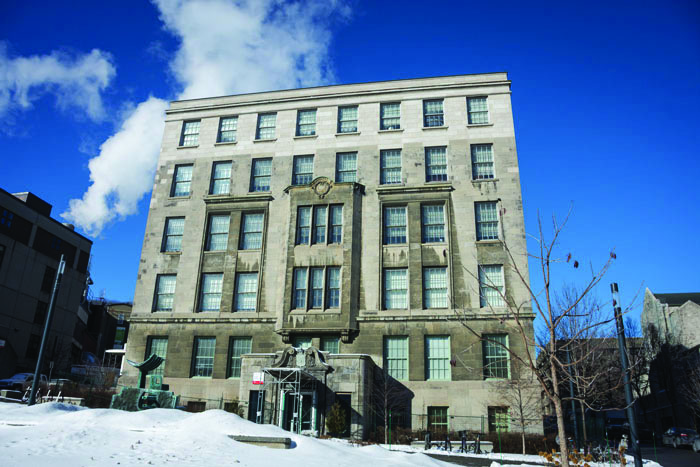Negotiations between McGill University’s Non-Academic Certified Association (MUNACA)—a union that represents nearly 2,000 support staff employees—and the university’s administration have reached a standstill after McGill’s most recent contract offer left MUNACA representatives unsatisfied. The contract between the two has not been updated since it expired late November 2018.
In an interview with The McGill Tribune, Thomas Chalmers, president of MUNACA, explained that McGill’s salary offer, which is “close to being final” is unfair for MUNACA members.
“According to their latest offer, [McGill said] there is not much room to move,” Chalmers said. “They offered a 1.5 per cent increase for three years over each year, which is well below the cost of living [….] The cost of living [would be a] 3.5 per cent [increase]. I think that’s a huge difference.”
Nancy Crowe, MUNACA vice-president (VP) Labour Relations, added that the low salary offer causes an imbalance in the negotiations, favouring McGill.
“The expectation […] is that we move toward them [in our offer], not the other way around,” Crowe said. “[It is] clear that discussion stops if [we] don’t reduce our demands.”
McGill media relations officer Frédérique Mazerolle provided a statement about the impasse on McGill’s behalf, which reads that both parties have met extensively to create a new contract.
“Following the MUNACA union drive which resulted in a new MUNACA bargaining unit, parties have met regularly with the aim to conclude a first collective agreement (i.e. under the new bargaining unit),” Mazerolle wrote in an email to the Tribune. “While details cannot be shared at this time given the ongoing negotiations with MUNACA union leadership, discussions will continue in January in presence of a conciliator appointed by the Ministry of Labour pursuant to a request filed by McGill.”
Chalmers expressed uncertainty that the conciliation will help overcome the dispute between the two parties.
“Hopefully the conciliator will be able to bring the parties together, but there is a significant difference [in what the two want],” Chalmers said. “We’re not talking about a strike yet, there are other things we can do in terms of pressure tactics [….] Nobody wants a strike […] but also nobody is ready to be treated like shit.”
With MUNACA members forced to do in-person work during the COVID-19 Omicron variant surge, Crowe feels that issues between the McGill administration and its employees have been exacerbated.
“We now have people working in a library, not in the back of Service Point, where there is no one to serve,” Crowe said. “We have admin staff in a wellness centre for which students have no access [….] We’re dealing right now with [McGill’s] disregard for the health and safety of our members during this rapid spread of Omicron.”
Fanta Ly is the president of the Association of McGill University Support Employees (AMUSE), a union representing approximately 1,500 employees, most of whom are students. She is disappointed with how McGill is treating its employees, particularly the floor fellows who live in student residences, amidst the Omicron wave.
“[McGill] had issued contracts for floor fellows even when they knew the semester was going to be online and then withdrew those contracts,” Ly said. “Some of [the floor fellows] had already relocated to Montreal, and [McGill] did that very last minute.”
Representatives from MUNACA and AMUSE both cited Workday, an HR software McGill implemented in August 2020, as an ineffective platform for payroll.
“It was such a mess when it was implemented that thousands of people weren’t paid for a substantial amount of time,” Crowe said.
Reflecting on the negotiations and the struggles that employees and unions are facing, Crowe spotlighted the essential role employees play in ensuring McGill’s smooth functioning.
“I would frame this […] as a typical worker’s struggle,” Crowe said. “We are support staff, we make this university run, we’re on campus, our members are working [….] McGill works because we do.”








